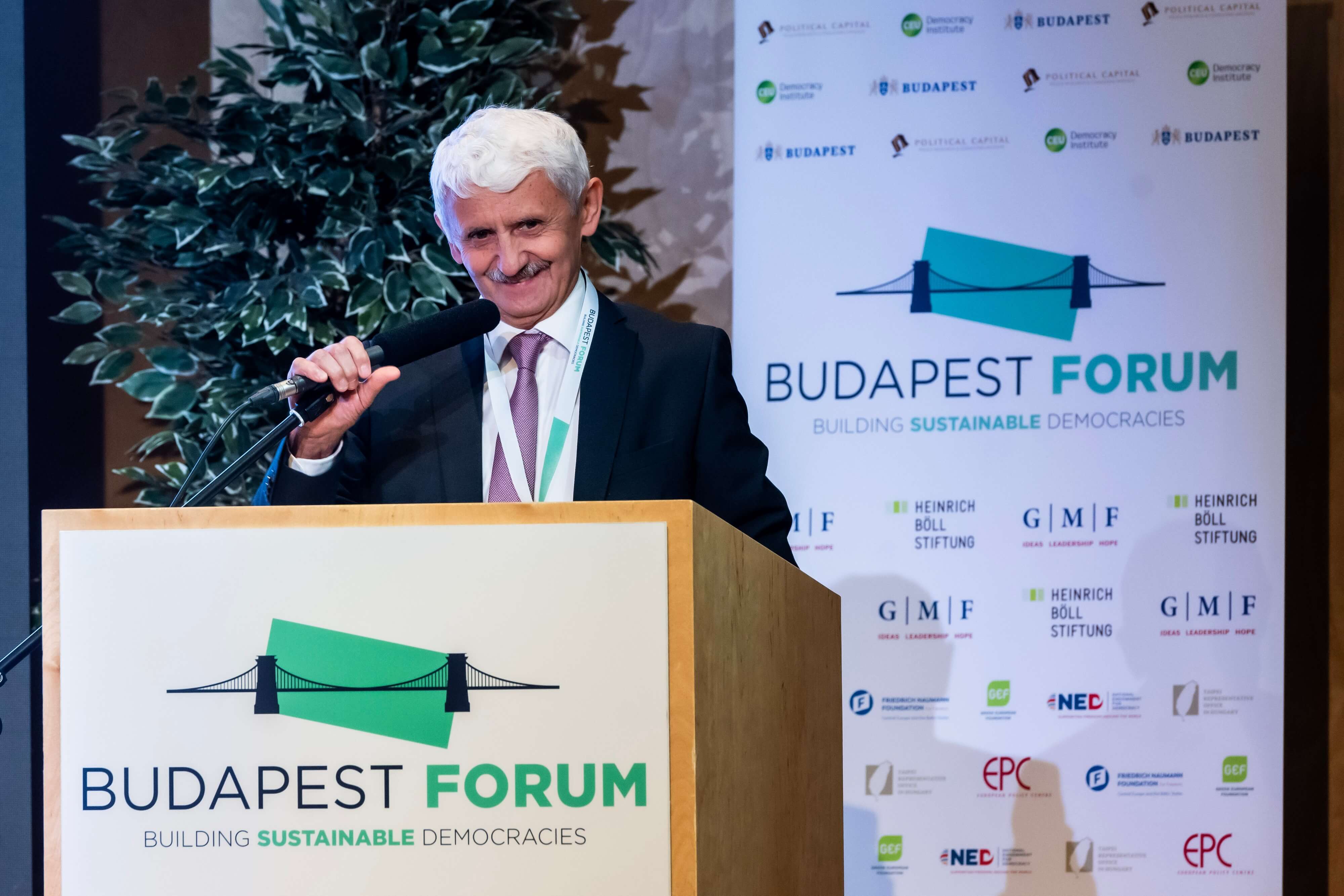Political Leadership in the 21st Century: Populism, Authoritarianism, Dictatorship
2024-09-26
Keynote speaker:
Mikuláš Dzurinda, President, Wilfried Martens Centre for European Studies; Former Prime Minister of Slovakia
Speakers of the panel discussion:
- Júlia Sonnevend – Associate Professor of Sociology and Communications, New School for Social Research
- Levente Littvay – Senior Research Fellow, Center for Social Sciences, CEU Democracy Institute
- Mark van Vugt– Professor of Evolutionary Psychology, VU University Amsterdam; Research Fellow, University of Oxford
- Mikal Hem – Journalist, Author of How to Be a Dictator: An Irreverent Guide
- Moderator: Benjamin Novak – Doctoral Candidate, John Hopkins University; Research Affiliate, CEU Democracy Institute

Main takeaways:
Dzurinda discusses the rising trends of populism, authoritarianism, and dictatorship in the 21st century, emphasising their presence in the United States, Europe, and other parts of the world.
- He argues that these developments stem from political challenges and broader societal changes, particularly the widening gap between the rich and the poor. Economic hardships and inequality have led to increased frustration, especially among those struggling to secure a stable future for their families.
- Technological advancements, particularly social media, have exacerbated this divide by allowing the wealthy to flaunt their success while giving frustrated individuals a platform to express their discontent.
- Dzurinda critiques both the arrogance of the wealthy and the political elite's failure to address the concerns of ordinary people, which has fueled populist movements. These populist leaders, though dangerous, gain power by making unrealistic promises and ultimately fail to deliver, leading to further polarisation and calls for authoritarian leadership.
- The speech stresses the importance of dialogue, reforms that benefit all, and the role of the media in fostering constructive debate rather than perpetuating division.
- The ultimate message is that democracy, emphasising freedom, different opinions, and opposition, remains superior to dictatorship. To combat populism and autocracy, societies must uphold freedom of thought, expression, and action, as these lead to courage and responsible leadership. The speech ends with a call to remain committed to these democratic values to eventually succeed against populism and authoritarianism.
The panel discussion focuses on exploring the nature of leadership in the context of political governance. The panelists discuss leadership itself, including the differences between leadership in democratic versus non-democratic settings and what makes leadership legitimate. Then they discuss how societal conditions influence the types of leaders that emerge and they reflect on ways society can move forward in cultivating positive leadership.

- The panel discusses the rise of political personalisation, where personalities overshadow institutions and policies. This shift has led to the rise of charm as a new form of personal magnetism in global politics, emphasizing proximity to political tribes rather than traditional charisma. This requirement for politicians to appear relatable and authentic in an increasingly volatile political environment creates challenges and opportunities for leaders to rise and fall quickly.
- Leaders derive power from either strong institutions or personal charisma, with the balance shifting based on the audience and followers' motivations. Economic inequality plays a significant role in driving support for strong leaders, particularly among those seeking protection or empowerment. The tension between democracy and individual needs can lead to a desire for decisive leaders, challenging the traditional values of democracy.
- Authoritarian leaders also rely on carefully crafted personalities to maintain their power by projecting themselves as protectors or fighters for freedom. The effectiveness of a leader's personality in overcoming poor policies or vice versa depends on the audience's perceptions and needs. Strong personalities can overshadow bad policies, while good policies can be ruined by awful personalities.
- Efforts to reduce polarisation are more prominent in the U.S. than in Europe. Troll factories and authoritarian regimes have influenced opinions, but polarisation often arises organically. Group identity frequently supersedes facts, with both liberals and conservatives demonizing different groups.
- Polarisation is a real phenomenon exacerbated by conflict and competition between groups, fueled by cultural entrepreneurs who drive extreme positions. Mitigating polarisation requires understanding followers' frustrations, anxieties, and motivations to address the root causes of division. Everyday acts of courage, such as engaging in dialogue with different perspectives, can help bridge ideological divides and foster a more inclusive society.
- The need for strong democratic leadership is highlighted, especially during crises like climate change and migration. However, leaders should avoid relying on crisis-driven narratives and it is crucial to have leaders who can address long-term. Engagement, collaboration, and unity, such as among journalists and mayors, are seen as effective ways to challenge authoritarian regimes.
Copyright 2026. Political Capital Policy Research and Consulting Institute, all rights reserved.

